Aside from its many local attractions and delicious cuisine, Taiwan holds festivals that commemorate its colorful history, culture, and beliefs. Over the years, these traditions have been passed down from generation to generation of Taiwanese citizens.
To foreign residents and tourists who are visiting the country, joining Taiwanese festivals are both an enjoyable and enriching experience! You’ll love learning about the history behind the these occasions, and what they symbolize for the people of Taiwan today.
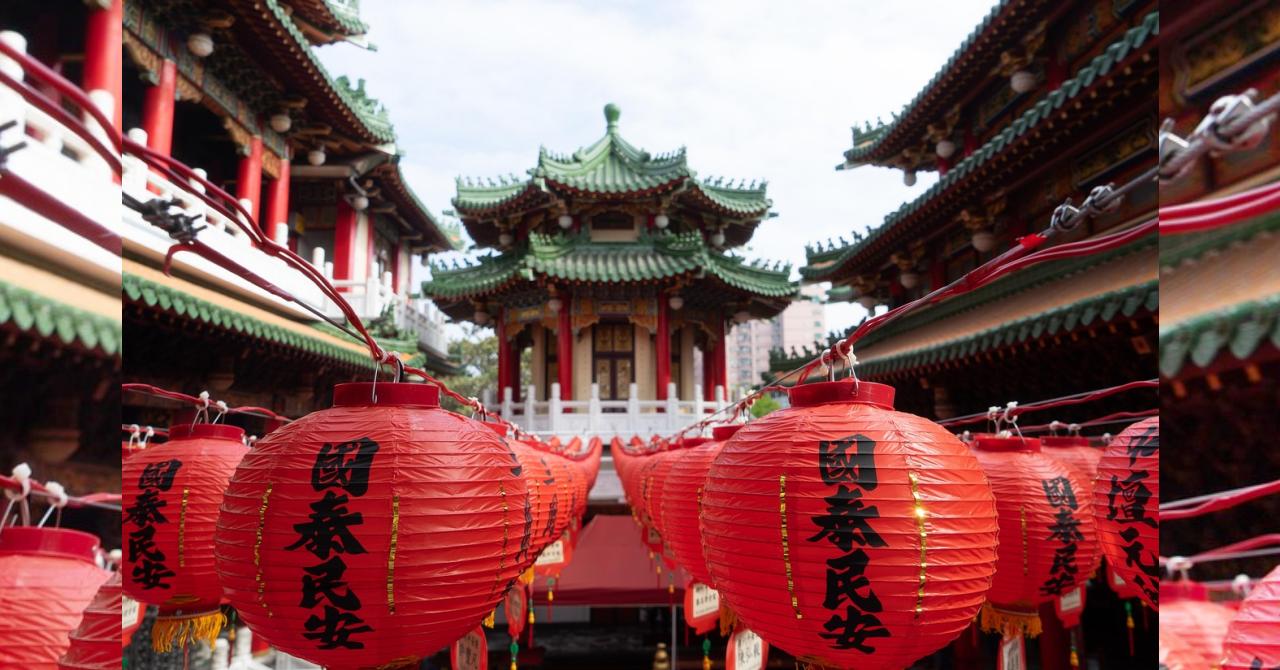
List of Taiwan’s Traditional Festivals
Every year, the Taiwanese observe the following traditional festivals. There is usually a holiday during these events; schools and offices are closed so that people can participate in the festivities.
Lunar New Year
The Lunar New Year marks the first day of the traditional lunisolar Chinese calendar. Not only does it commemorate the start of a new year, but also brings families together in a grand reunion.
Days before the holiday, the Taiwanese conduct a thorough cleaning of their homes — an act believed to help “sweep” misfortune away and bring a fresh start to the new year. On doors and windows, auspicious Chinese characters are posted. The people also make “Nian Gao,” a sticky rice cake believed to bring good fortune. Notably, the term Nian Gao sounds like “higher year” in Chinese, hence the custom of eating the rice cake to welcome the new year.
On New Year’s Eve, the whole family gathers for a traditional dinner. When the clock strikes 12 midnight, firecrackers are set off to welcome the new year.
Taiwan Lantern Festival
Every year, the Tourism Bureau of Taiwan’s Ministry of Transportation and Communications hosts the Taiwan Lantern Festival. Aside from being a traditional festival, this event also aims to engage local tourists as well as foreign visitors.
In the past, people celebrated this event by carrying hand lanterns. These days, however, along with spectacular lantern displays are fireworks displays, folk arts, and performances. These include the lighting of thousands of sky lanterns in Pingxi District, and the firecrackers ceremony at the Wumiao Temple in Yanshuei District.
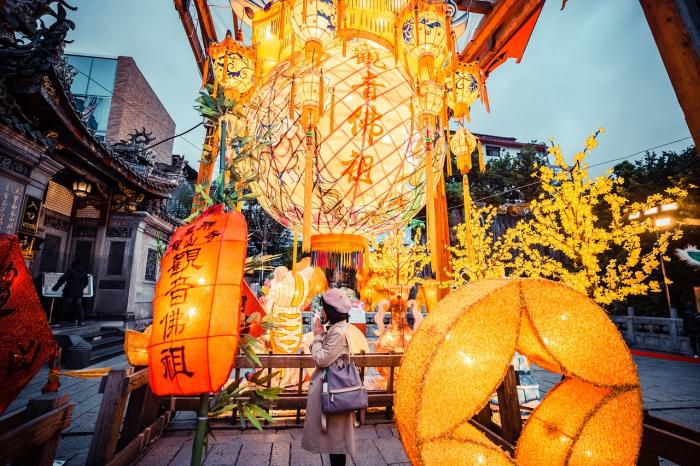
Pingxi Sky Lantern Festival
Pingxi is a remote hillside town in Taiwan. In the past, the people living here often faced the risk of getting robbed, so they released sky lanterns to let their families or relatives know that they are safe. Nowadays, these sky lanterns are no longer used as “signals;” rather, they have become symbols of peace and prosperity.
Before releasing lanterns into the sky as part of the Taiwan Lantern Festival, the owners of these lanterns at Pingxi decorate them with images and wishes — wishes of safety and good fortune.
Yanshuei Fireworks Festival
At Yanshuei District, Tainan, on the day before the Lantern Festival, the God of War deity is paraded around town, accompanied by fireworks displays. The event, which features fireworks, noise, and rituals continues up to the following morning. Traditionally, the fireworks festival is held to ward off evil and diseases. Today, it is one of the most popular attractions of the Taiwan Lantern Festival.
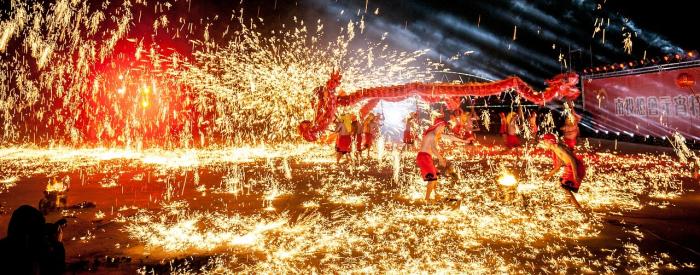
Dragon Boat Festival
The Dragon Boat Festival is sometimes called “Poet’s Festival,” in commemoration of Qu Yuan, a poet who lived during the Warring States Period. According to the legend, when Qu Yuan jumped to his death in the Miluo River, the people frantically rowed their boats along the river, searching for him. Over time, this practice evolved into the dragon boat races that we know today. In fact, local and international dragon boat races are held in Taiwan every year.
Another tradition observed during this festival is the eating of “zongzi” or glutinous rice dumplings wrapped in bamboo leaves. Once again, this practice is based on the legend of Qu Yuan. After he jumped into the river, the people tried to save him from being eaten by the fish. They stuffed rice into bamboo sections and throwing them into the river to feed the fish.
Bombing of Han Dan Festival
On the 15th day of the first month of the lunar calendar, people in Taitung City, Taiwan, celebrate the Bombing of Master Han Dan. Master Han Dan is known as the God of Wealth, the guardian of celestial treasury.
During this festival, a man representing Master Han Dan is paraded around town for an annual “inspection tour.” Along the route, people offer fresh flowers and fruit, while also lighting strings of firecrackers to welcome the deity. The festival symbolizes themes of bravery, expulsion of evil spirits, blessings, and good fortune.
Zhongyuan Festival
This event is held on the seventh month of the lunar calendar. Also called the Ghost Month, people believe that it is a time when gates of the “netherworld” open and ghosts haunt the islands of Taiwan.
On the first day of the month, the gates of a temple are opened, symbolizing the opening of the gates of the netherworld. On the 12th day, the lamps on the main altar of the temple are lit, and people hold rituals seeking salvation from misfortune and disaster. The event ends on the 29th day of the month, when the gates close.
Zhongyuan Universal Salvation Ceremonies
The Zhongyuan Festival involves plenty of activities. At home, households prepare fresh flowers, incense, fruit, and meat — to be offered to “hungry ghosts” at temples or on altar tables set up in front of their houses. They also asks monks to pray for their deceased loved ones, including people who have passed away and have no descendants left on earth. This practice is referred to as Zhonguan Pudu or “Universal Salvation.”
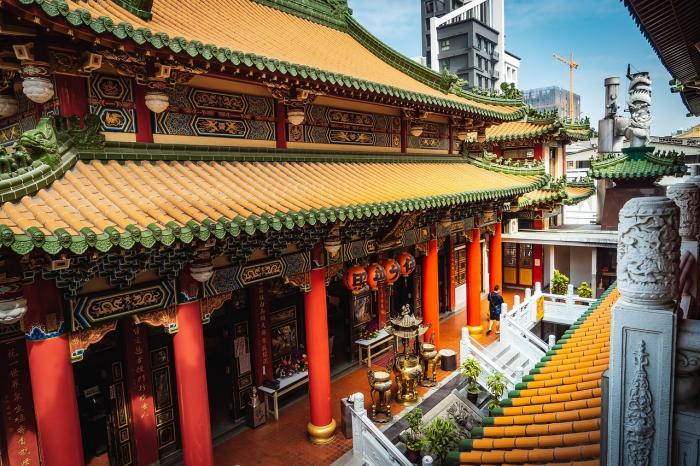
Launching of Water Lanterns
This is another tradition held during the ghost month. On the 13th day of the month, a parade of lanterns is held; on the 14th day, another parade is held for releasing lanterns onto the water.
The practice of launching water lanterns is believed to help lost souls in the water find their way onto land, to enjoy the offerings prepared for them, and to pray for their reincarnation. It is also believed that the further a lantern floats on the water, the greater that fortune that awaits the family in the coming year.
Grappling with the Ghosts
On the last day of the ghost month, when the gates of the netherworld close, this event is held in Hengchung, Pingtung County and in Toucheng, Yilan County. Grappling with the Ghosts is a pole-climbing competition visited by many local and foreign tourists.
Mid-Autumn Festival
Along with the Lunar New Year and the Dragon Boat Festival, the Mid-Autumn Festival is one of the most major traditional holidays in Taiwan. During this period, it is believed that Chang’e, the lady in the moon, shall bless children with good fortune. Hence, it is also known as “Moon Day” — a time for gathering families, strolling under the full moon, eating pomelos because the Chinese term for pomelo sounds similar to “care and protection,” and of course, eating moon cakes, which symbolize unity.
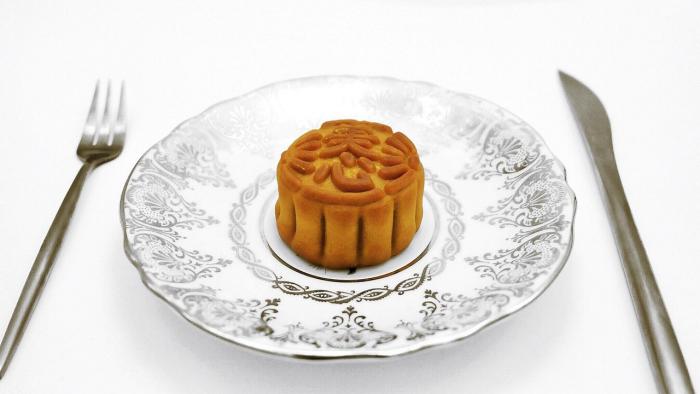
Taiwan’s traditional festivals are based on local history, culture, and folklore that has been passed across many generations. It is truly interesting to learn about the people and their beliefs through these celebrations! Speaking of culture, check out this article to know more about Taiwanese customs and work etiquette that every overseas Filipino worker (OFW) should know.
